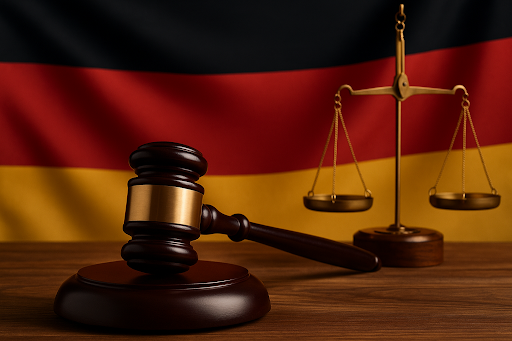German Court Ruling Curbs GGL’s IP Blocking Powers in Gambling Cases

Germany’s Federal Administrative Court has issued a ruling that significantly restricts the authority of the Joint Gambling Authority of the Länder (GGL) to enforce IP blocking measures against unauthorized gambling websites. The decision, delivered on March 19, 2025, specifically limits the GGL’s ability to compel telecommunications resellers—those without their own infrastructure—to block access to these sites under the current legal framework.
The ruling marks a continuation of earlier findings and affirms the positions of both the Administrative Court of Koblenz and the Higher Administrative Court of Rhineland-Palatinate. It concludes that Article 9(1) of the 2021 State Treaty on Gambling (GlüStV 2021) does not extend blocking authority to these types of internet service providers.
Legal Basis for Blocking Declared Outdated
Central to the court’s decision is its interpretation of Sec. 9(1) sentence 3 no. 5 of GlüStV 2021. The court clarified that this provision applies only to “responsible service providers” as defined by the now-obsolete German Telemedia Act (TMG). Since the TMG has been superseded by the EU’s Digital Services Act (DSA), its definitions no longer apply—rendering the GGL’s attempts to enforce blocking orders against telecommunications resellers legally invalid.
The court also emphasized that broader enforcement powers under Article 9(1) cannot override the specific limitations of this clause, which it deemed exhaustive regarding enforcement against service providers.
Host-Based Enforcement to Continue
Despite the legal blow, the GGL stated it remains committed to its enforcement mission and will continue to focus on host providers rather than access-level interventions. This strategy shift began in 2022 following similar legal rulings and has led to the successful blocking or disabling of over 930 domains associated with unlicensed gambling.
Though this approach requires detailed investigations and longer enforcement timelines, the GGL has described it as “very successful.” When unauthorized operators relocate to new hosting environments, the GGL adapts by launching follow-up enforcement actions to ensure continued compliance.
Push for Legislative Reform
Acknowledging the gaps exposed by the court’s interpretation, the GGL is now calling for legislative changes. It is urging amendments to Sec. 9 GlüStV 2021 that would not only extend blocking powers to cover illegal gambling advertising but also streamline enforcement procedures. One key proposal would eliminate the need to take prior action against illegal operators before pursuing blocking measures—mirroring the rules already used in payment blocking.
These revisions had already been under discussion before the court ruling but are now being expedited in collaboration with Germany’s state-level authorities. The GGL anticipates that the updated legal tools will better equip it to combat unlawful gambling platforms.
Implications for Providers and the Industry
For telecommunications resellers, the court’s decision clarifies that they cannot be compelled to enforce IP blocks without a concrete legal basis. This outcome reinforces the importance of legal precision in regulatory enforcement and distinguishes between different roles within the digital services ecosystem.
Operators facing similar enforcement attempts may now be more likely to contest such actions if they fall outside clear legal boundaries. Meanwhile, regulators across Europe continue to step up their crackdowns on illegal gambling platforms—Spain, for instance, recently issued €77.4 million in fines against 14 unauthorized operators.
Germany’s Broader Regulatory Direction
The ruling adds another layer to the ongoing evolution of Germany’s gambling oversight, highlighting both the limitations and adaptability of current enforcement strategies. GGL CEO Ronald Benter has emphasized the need for stronger legal instruments, while also reiterating that the regulator’s existing tools—especially host-based actions—remain effective.
The GGL also continues to coordinate with regional agencies focused on player protection and harm prevention, reinforcing its commitment to upholding responsible gambling standards amid a changing legal and technological landscape.
Source: German Court Limits IP Blocking, GGL Keeps Host Enforcement, gamblinginsider.com, May 21, 2025







